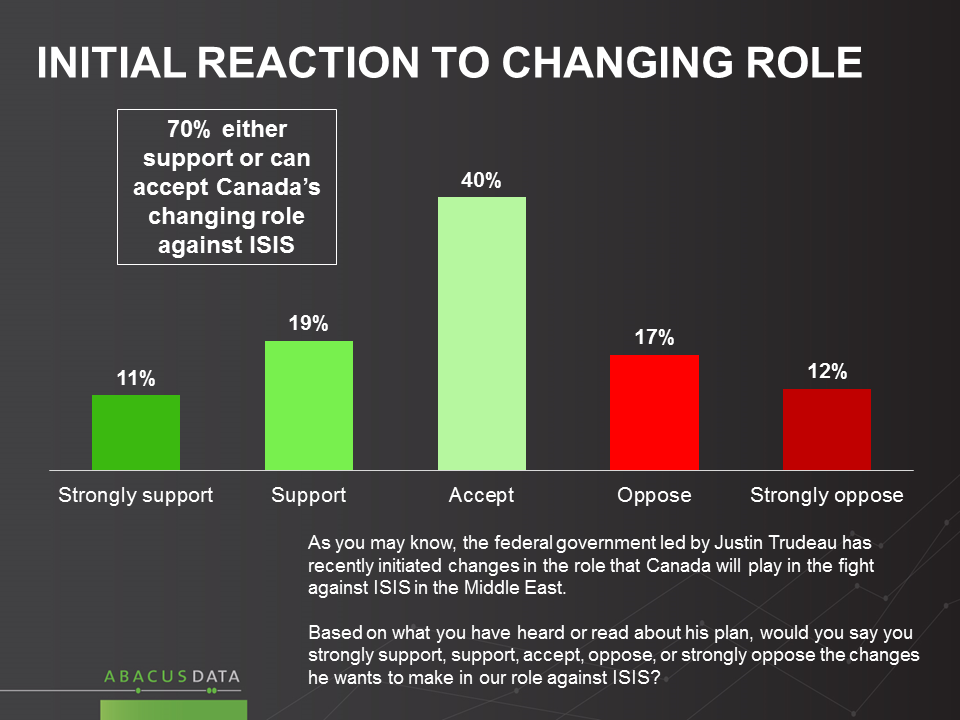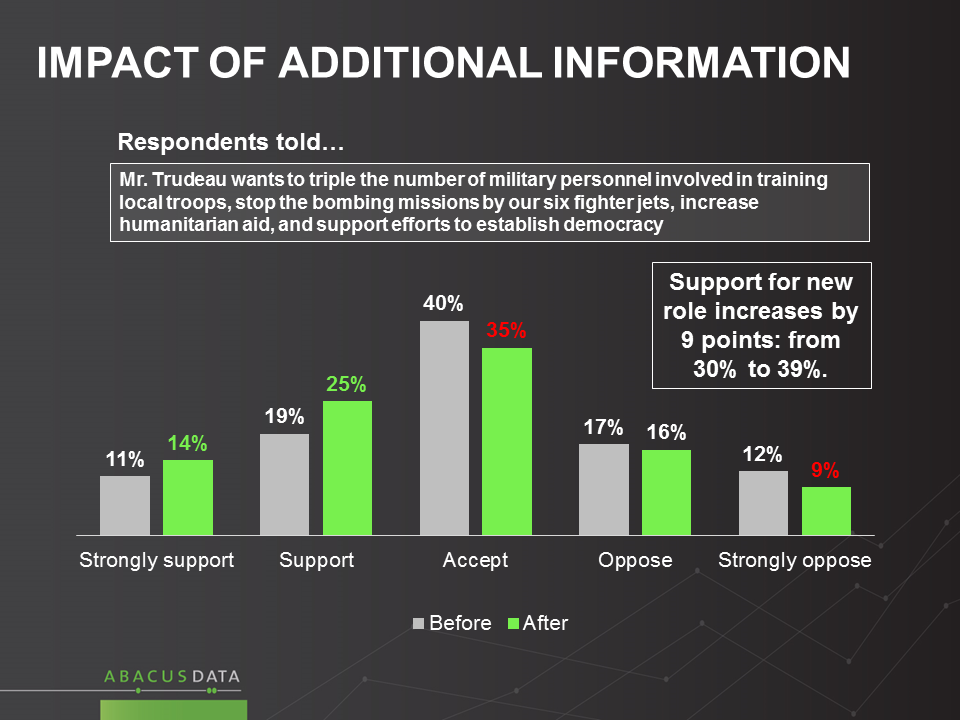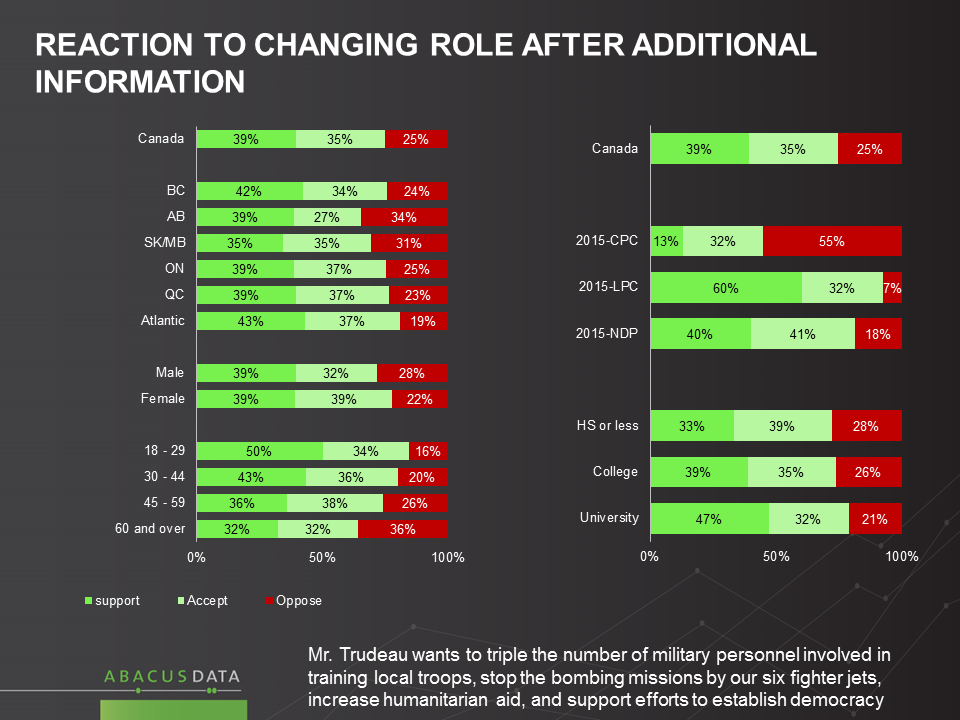Less than 1 in 3 oppose changes to Canada’s role in fight with ISIS
March 2, 2016
MOST ACCEPT CANADA’S SHIFT IN ROLE IN THE FIGHT AGAINST ISIS
Our latest poll reveals broad acceptance of the move by Ottawa to adjust Canada’s role in the fight against ISIS: 30% support the new approach, 40% say they accept it, while 29% oppose.
Reactions diverge along partisan lines. Large majorities of NDP (78%) and Liberal (90%) voters accept or support the shift. Perhaps most interesting, given the political debate of the last year, is that one in three Conservatives (35%) also show no opposition to the change in role.
To explore reactions further, we added a second question describing the main elements of the shift in posture (trebling training personnel, withdrawing jets, more humanitarian aid, support for democracy). This aided question found a 9-point higher level of support, and a 4-point drop in opposition (39% support, 35% accept, 25% oppose).
Support jumped among women (+11), those under 45 (13%) and Liberal voters (+14). Mostly this was about a shift from “acceptance” towards a more enthusiastic “support”.
Among Albertans, support jumped 14 points to 39% and opposition dropped 11 points to 36%. Among Conservatives, support rose 5 points to 13%, and opposition dropped 10 points to 55%.

Overall 40% say new role for Canada is better, compared to 21% who say it is worse than that favoured by the Harper government. 39% say it is not really any better or worse. In Alberta, 29% say the new approach is better, 31% say worse.
Among Conservatives, 52% say it is worse, and the rest say it is either better (9%) or no better or worse (38%). Among NDP voters, 46% say the new approach is an improvement, while only 13% say it is worse.
THE UPSHOT
The question of how best to handle the challenge of ISIS was one of the most highly charged political debates in the last year. For a time, it was evident that a fair number of Canadians had doubts about whether the Liberals and Mr. Trudeau were advocating the right approach.
However, now that the government has made its intentions clear, and has been in office for a period of time, these results suggest a growing measure of confidence that the new Prime Minister has developed an approach that seems thought out and credible.
While all three parties took different positions on this issue, most NDP voters are comfortable with Mr. Trudeau’s approach and only half of Conservative voters seem truly upset at this policy shift. Some of the more pointed criticisms of the Liberal position (e.g. “cowardly”) do not appear to have landed credibly, even among many Conservative voters.
METHODOLOGY
Our survey was conducted online with 3,824 Canadian respondents from February 19 to 25, 2016. A random sample of panelists was invited to complete the survey from a large representative panel of Canadians, recruited and managed by Research Now, one of the world’s leading provider of online research samples.
The Marketing Research and Intelligence Association policy limits statements about margins of sampling error for most online surveys. The margin of error for a comparable probability-based random sample of the same size is +/- 1.6%, 19 times out of 20 for each province’s sample. The data were weighted according to census data to ensure that the sample matched Canada’s population according to age, gender, educational attainment, and region. Totals may not add up to 100 due to rounding.
Sample Specifications:
Residents of Nova Scotia, New Brunswick, Newfoundland and Labrador, Quebec, Ontario, Manitoba, and Saskatchewan were oversampled in this survey. Responses were weighted to match the distribution of the population based on census data.









